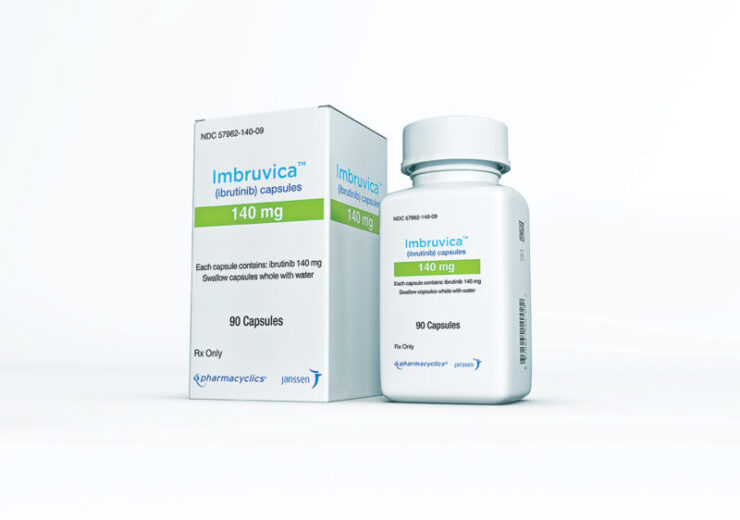Janssen Pharmaceutical revealed that the FDA advised that the primary outcomes from the two phase 3 confirmatory studies SHINE and SELENE for the two blood cancer indications were deemed to be insufficient for supporting conversion to regular approval

AbbVie, Janssen not to seek FDA’s regular approval for IMBRUVICA in MCL and MZL. (Credit: Janssen Pharmaceutical Companies of Johnson & Johnson)
AbbVie and Janssen Pharmaceutical plan to voluntarily withdraw the accelerated approvals of IMBRUVICA (ibrutinib) in the US for mantle cell lymphoma (MCL) and marginal zone lymphoma (MZL) owing to unexpected results in confirmatory trials.
The Bruton tyrosine kinase (BTK) inhibitor was granted accelerated approvals by the US Food and Drug Administration for the two blood cancer indications based on overall response rates in phase 2 clinical studies.
For mantle cell lymphoma, the drug was approved under the expedited pathway in patients who had at least one prior therapy. The accelerated approval for the marginal zone lymphoma (MZL) indication is for patients who need systemic therapy and were subjected to at least one prior anti-CD20-based therapy.
AbbVie and Janssen Pharmaceutical stated that other approved indications for the BTK inhibitor in the US are not involved in the withdrawal plan.
For confirming clinical benefit and continued approval following accelerated approvals, the SHINE and SELENE phase 3 trials were intended to serve as confirmatory studies as needed by the FDA.
The SHINE study was held in previously untreated mantle cell lymphoma, while the SELENE trial was taken up in patients with relapsed or refractory marginal zone lymphoma.
Although the SHINE trial met its primary endpoint of progression-free survival, the addition of IMBRUVICA to chemoimmunotherapy was related to increased adverse reactions compared to the placebo-controlled group.
The SELENE trial failed to meet its primary endpoint of progression-free survival.
AbbVie senior vice president and chief medical officer Roopal Thakkar said: “We pursued accelerated approvals for MCL and MZL indications for IMBRUVICA in the U.S. to offer a treatment to patients who at the time had limited therapeutic options.
“While we are disappointed in the outcome of the confirmatory trials for these indications, we remain confident in the benefit/risk profile of IMBRUVICA for patients living with multiple forms of blood cancer around the world.”
Janssen Pharmaceutical said that the phase 3 trials were enroled fully within a year of the accelerated approvals. The company revealed that the FDA advised that the primary outcomes from the two confirmatory studies for the indications were deemed to be insufficient for supporting conversion to regular approval.
Janssen Research & Development late development and global medical affairs vice president Craig Tendler said: “We fully support the FDA accelerated approval pathway, which patients rely on for timely access to promising treatments that may improve or extend their lives. While withdrawing these indications was a difficult decision, we remain confident in the benefit/risk profile of IMBRUVICA in its approved indications and are committed to its continued development.
“IMBRUVICA has transformed how patients with B-cell malignancies are treated and is the most comprehensively studied and prescribed therapy in its class.”
